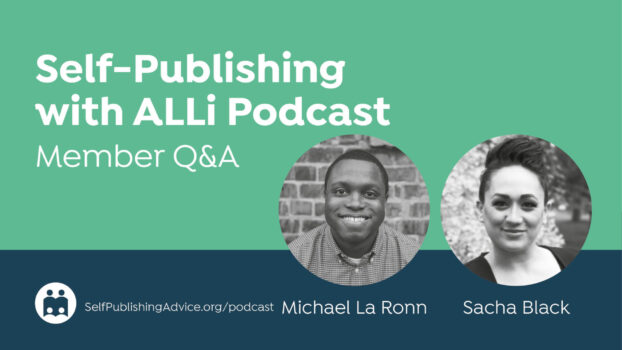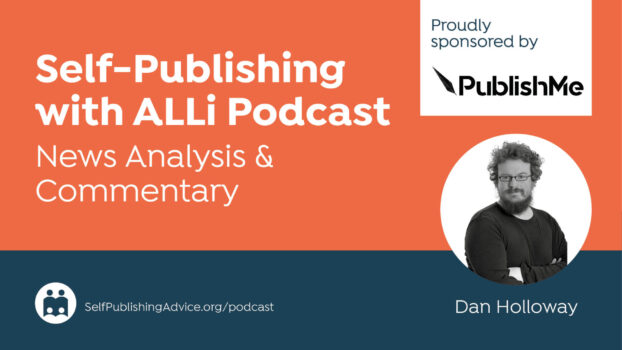With ten years' experience as a book reviewer and 41 books to her name, children's author Diana Kimpton has strong views on the best – and worst – ways to solicit reviews for self-published books.
In 1999, I started a children’s book review site at www.wordpool.co.uk. Although the site’s still there, I stopped adding new reviews three years ago because I wanted to spend more time on other projects, including my own writing. But during those 10 years, I learned a lot about how publishers relate to reviewers and which approaches worked best with me.
The Publisher's Approach to Book Reviews
Some publishers seemed more enthusiastic about getting reviews than others. Some sent boxes packed with books, many of which were unsuitable. Others gave me their catalogue and then sent any copies I requested. The best looked at my site and suggested titles they thought might fit well on it.
The one that worried me most was a large publisher who sent a bundle of advance information sheets and a form for me to complete that allowed me to request no more than three or four books for review. This seemed very hard on lesser known authors who were unfortunate enough to have a book published at the same time as several top name authors and were less likely to be reviewed as a result.
Occasionally a publisher sent a gift or gimmick with the review copy. This never made me select a book I might otherwise have ignored and sometimes had the opposite effect. I imagine the person who put lots of silver stars in the envelope with their book hadn’t considered how cross the reviewer might feel when she had to pick them all up.
Best Tactics for Indie Authors
I often had submissions from self-published authors, either directly or via a marketing/PR company they had employed. On the whole, the submissions from the so-called professionals were no better than the ones direct from the author and sometimes worse as they were less likely to be personally targeted. So don't assume that paying for PR will automatically increase your chances of reviews.
The most effective submissions I received were from people who had bothered to look at my website, noted the very specific types of books I reviewed and then submitted their book with a personal letter suggesting where their book would fit on the site. I always looked carefully at books sent that way, and many of them ended up being reviewed.
Eight Top Tips
Based on my experiences, here are my tips for approaching reviewers.
- Don’t send at random to a list someone else has created. Check out each reviewer yourself and only send your book if it’s the type they review.
- Find reviewers who specialise in your genre, read their submission guidelines and mention their website, blog or other reviews when you write to them.
- If you’re approaching them by post, send a copy of the print edition (if you have one) plus an information sheet and a personal letter.
- If you’re approaching by email, include the information about the book in the body of the email and don’t send attachments unless you know they are welcome. Unless their submission guidelines say differently, it’s best to ask if they would be interested in seeing your book and tell them which formats you can provide so they can choose.
- Don’t oversell yourself. Reviewers are not impressed by hype. They have already heard of too many authors who are supposed to be the next JK Rowling and too many books that claim to be bestsellers when they’re not.
- Don’t undersell yourself either. If your book is shortlisted for an award, say so and, if it’s had a good review from a reputable source, include a quote.
- Don’t include bribes, gifts or gimmicks with your book, not even chocolate. It melts in the post and sticks the pages together.
- Last, but by no means least, never ever chase a reviewer to ask if they’ve read your book. It’s very bad manners and will not help at all.
DIARY DATE: ALLi's new regular Author Circle event starts this Thursday (18th July). Click here to register in advance or click here to visit its Google+ page.





If you need a free book review, check out TEAMGOLFWELL book reviews. They are free >
https://www.teamgolfwell.com/free-book-reviews.html
#bookreviews
Thanks for oness marbelous posting! I seriously enjoyed
reading it, you can be a great author. I will make certain to bookmark your blog and will come back verry soon. I want to encouurage continue your great writing, have a
nice morning!
Enclosed is the link to a just published novel, ‘The Composer’ that has just been compared in depth to ‘The Great Gatsby’. See preliminary book reviews, book description and nine free chapters for possible review. Millet Books for Lee Olds.
http://www.amazon.com/dp/B00NAI8ANS/ref=rdr_kindle_ext_tmb
Hello Shaun – I’ve just spotted your reply here. I’ll be happy to add one of your books to my review list. Please nominate which one you’d prefer to have reviewed. I have more time to review books now and although there are 16 in the queue ahead of yours, and I read 1-2 books each week, I’m happy to add yours as number 17. (NB I don’t always read them in order – if I need a change of mood, I mix them up.)
One good way to find reviewers could be to agree to a book swap with another indie author. It doesn’t have to be someone in your genre. I know many authors are wary of reviewing others’ books, particularly on Amazon, or may not be comfortable or confident writing reviews at all, but in your position I would make some personal approaches to other self-published authors with whom you feel you might have something in common, e.g. other Irish thriller writers.
Alternatively, have a browse through the top reviewers on Amazon UK till you find someone who looks a likely candidate. Some – but not all – will make their email address public, if they’re happy to be approached. I’ve just done this myself recently and have received a few requests already. Polite, personalised requests are welcome – what these reviewers don’t like is being taking for granted e.g. I just had an email offering a free e-book, RRP 99p, from an author who said she’d “expect” a review.
Here’s a good article about Amazon reviewers: https://selfpublishingadvice.org/why-indie-authors-need-to-understand-the-subculture-of-amazon-reviewers/ (Ok, so I wrote it, I admit!) Theo Rogers’ book about Amazon reviewers is also well worth a read.
Hope that helps, Shaun, and best wishes.
I am with Renee Leduc! Eighty next year and though I have been writing most of my life I find this breaking through layer after layer of advice, directional motivation and sometimes plain flim-flam downright exhausting, not to say confusing. I’ve written three novels, two self-published and fourth WIP, as well as short stories, articles and even TV and radio scripts. One of my own faults(and I see this referred to several times above) is having to wait for long periods for replies to submitted stuff. At my age time is – as they say – of the essence. I also have a persoanl habit of always replying to other people’s request ASAP. This is my weakness, I freely admit it. But I can see from the foregoing that I will have to be more patient… if I could only just get someone to review one book in the meantime! I have spent weeks(evenings) trying and still at square one. Please advise.
Thanks for a solid, pragmatic approach to dealing with prospective reviewers–it’s great to get suggestions from someone who’s been on the other end of the transaction.
I think #1 is particularly important. I’ve done quite a bit of digging into the many lists, directories, and books that are now available that give contact information for reviewers and purport to list details like the genres they will or won’t review, or the manner in which they want a book submitted. Some of these can be a good starting point, but it’s become painfully clear to me that you absolutely have to double-check all the information they contain for yourself.
Some people who prepare these listings are diligent, but others aren’t. They get things wrong and without checking you have no way of knowing. Or they get things right, but right as of a year ago, and the reviewer has long since decided (for example) not to review science fiction any more so they can focus exclusively on fantasy. Or the reviewer isn’t taking any submissions for the next six months because they have a backlog to deal with. I’ve checked listings only to find that a reviewer’s email and url have completely changed.
And conversely it’s clear that, as you say, a submission can be very effective if it’s carefully targetted and tailored to the likes and dislikes of the particular reviewer.
(For anyone who might find it useful, I prepared an article for IndieBookLauncher.com that covers slightly different ground from this one, including a few other details on using lists and directories. http://www.indiebooklauncher.com/resources-diy/getting-your-indie-book-reviewed.php )
Thanks again for this–I suspect that I’ll be recommending this column to some clients. I think it’ll spare quite a few authors (and the reviewers they submit to) a lot of heartache.
Nas Hedron
I would recommend Peter Church’s book Added Value-the life stories of Indian business leaders. Amazing insight on some truly inspirational people. You should read this book not only because it was fantastically insightful and interesting in relation to the individuals but also gives the reader an incredibly helpful view of the mindset of the business leaders. The book is an excellent primer for anyone seeking to do business.
http://amzn.com/B009PMPKZ4
Thank you for this useful article, I just went through something like 100 blogs to review my children’s book and now I have more confidence to approach them
Do you know any names of bloggers who were open to reviewing self published children’s books?
You are in actuality any good internet marketer. The website loading velocity is definitely awesome. That almost thinks that you’ll be accomplishing just about any exceptional key. On top of that, The actual belongings usually are masterpiece. you will have completed an excellent hobby in this particular subject matter!
[…] How To Get Reviewed DO and DON’T tips from a reviewer […]
Getting reviews for indie books is among the most common questions writers ask, and I admit getting reviews can be really hard. In my experience, the best way to get organic reviews (from people who were perfect strangers before reading your book) is to make a mention at the end of the book how much a review is appreciated. If they bought the book and got to the end, they probably enjoyed it–the request for a review tends to go further at that point with those readers.
I found your 8 tips very sensible. To get book reviews do I just go on Google & type “book reviewers” ? I am an 81 year-old woman who wrote a memoir. I find this whole process of publicizing and selling my book absolutely terrifying.
You don’t just need book reviewers – you need reviewers who like memoirs. Find a book that’s similar to yours and selling well. Then type the name of the book and the word review into Google to find out who has reviewed that. Then look closely at the people who wrote those reviews and, if they look suitable for your book, try contacting them.
Great advice, but I have to admit I was bewildered by #8. I can understand the annoyance of being hassled by publishers who send boxes of unsolicited and often inappropriate books and then demand to know if/when you’re going to read them and say something. But if I’ve had a personal exchange and the reviewer has agreed to read/review my book and asked me to send a copy, surely it isn’t rude to send a simple follow up after a month with a friendly inquiry as to whether they got it and how they’re doing with it?
A month really isn’t long for a reviewer. When I was reviewing all the time, I always had a pile of books waiting to be read so new ones joined that pile and didn’t get immediate attention. Also the actual review might show quite a while after someone has read the book, especially in print magazines and newspapers.
It’s okay to check the book has arrived safely but I’d avoid pushing beyond that point in case you put the reviewer off.
If an author sends me a follow up after a month, I’m going to be annoyed because I almost certainly told them I had a three-month backlog (as I tend to schedule reviews two to three months in advance).
If an author follows up a month after I said I’d have the review done by … that’s ok.
Thank you, Diana for giving us this very helpful list of tips. I especially appreciated reading tip #6, as I was never certain where to draw the line with mentions of book awards, or if to bring them up at all. (How much is too much and when does it become overkill bragging?) Now I know! I appreciate these remarks coming from you, an experienced reviewer.
I was very interested to read that professional PR have no greater, possibly smaller success than authors. I was strongly advised ( but then I should have thought about why!) that mainstream media are embarrassed to have to refuse a book to the author and that is why publicists do better. The media feel freer to say no and therefore are more likely to say yes. Thus far I have found the opposite.
Interesting comment. I don’t think many reviewers say ‘no’ to authors or publicists. They just say nothing. The whole time I was reviewing I can only remember once actually explaining why I hadn’t reviewed a book. That was because it was a picture book about little animals in a rowing boat rescuing a poor polar bear trapped on an iceflow. I was so cross that they had ignored the fact that polar bears are one of the strongest swimmers of all land mammals that I felt obliged to say something.
You make some excellent comments here, especially re the glitter stars and chocolate in the post! I’ve just started reviewing novels for the Awesome Indies site and find that those who send me books to review are mostly very professional and include just enough information about their book. I actually disagree regarding attachments, for me it speeds up the process if a PDF or EPub file is already included. I also like having a link to an author page either on Amazon or their own blog (if it has an author profile easily found).
Interesting article, I shall of course keep all this in mind when I send my own work out!
Good point about the link to author pages. Well worth doing.
Obviously attachments are welcome with you and I imagine you or Awesome indies make that clear. The Kindle Review site also suggests sending the ebook straightaway. My comment was aimed more at those reviewers who don’t say what they want as attachments from unknown sources can set alarm bells ringing. I suppose our difference of opinion reinforces the need to research individual reviewers rather than just send out at random to names on a list.